|

ZERO
CARBON SAILOR - Greta Thunberg sailed across the Atlantic Ocean on
Malizia II, a yacht that is zero carbon by virtue of sails for
propulsion and solar panels to power the onboard systems.
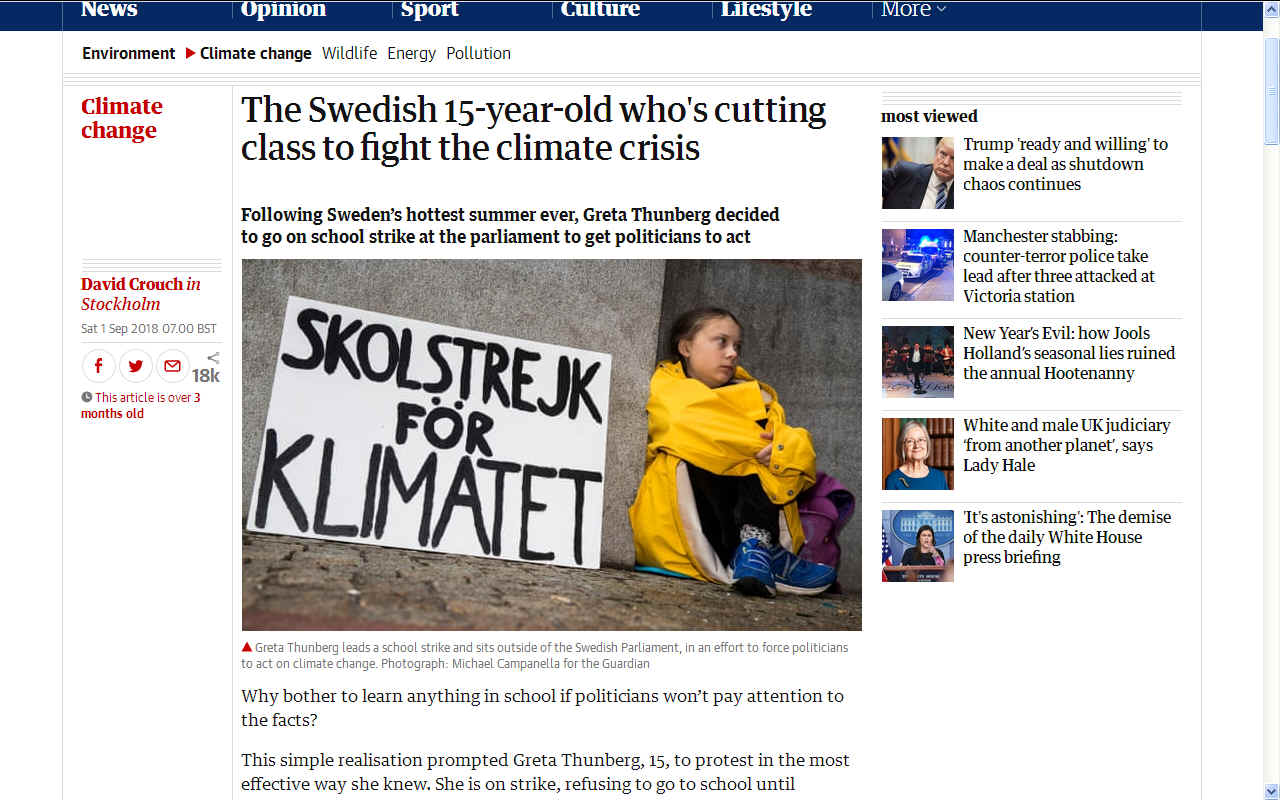
MISS
CLIMATE CHANGE - If you are going to skip school, what better reason
than to try and save the planet.
She
stated at 15 with a TED talk, then the United Nations COP25 conference.
Now at 16 Greta Thunberg is roasting the elite @ Davos. What
an inspiration, and one of the youngest climate activists no doubt. At
the COP24
climate talks in Poland, December 2018, Greta Thunberg addressed the
Secretary-General of the United
Nations. She received a standing ovation for one of her talks. She
is behind the global school
strike created to call attention to climate
change. She is a rebel. With a cause. Miss Thunberg is just 15 and
autistic and the newest, and most powerful voice on the world stage
demanding the world address global
warming. We want to be autistic too. See
Greta's UN speech here.
If
you read this Greta, we noted that you were asked a number of questions
in a panel debate. What struck us is that where you have prepared your
talks and obviously know the subject matter very well, the real turning
point will be adopting clean transport and building clean homes, about
which it is difficult to express with emotions running so high.
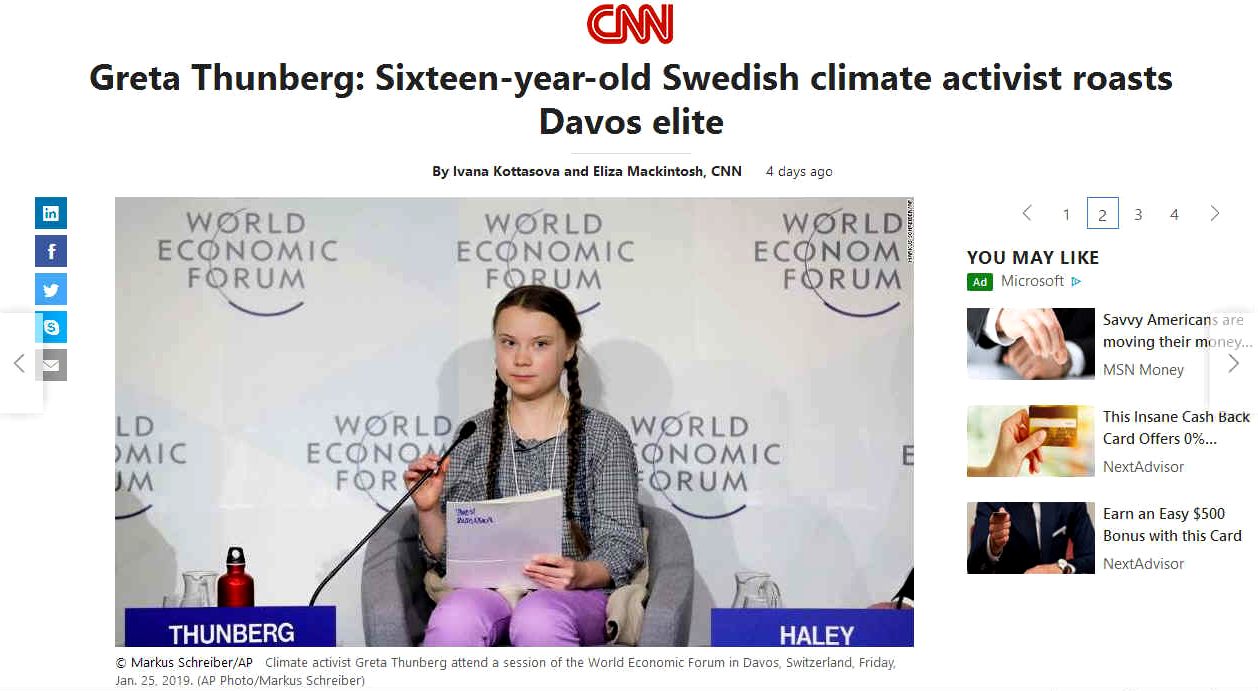
CNN —
Greta Thunberg: Sixteen-year-old Swedish climate activist roasts Davos elite
Just
is case you are asked such questions again, it may help your lobbying
if you have some kind of Action Plan: Greta's Action Plan to rescue the
adults from themselves. We are sure your plan will be better than
anything we might be able to suggest as a starting point. This is only
constructive comment, not criticism. We are devoted fans to your courage
and insight.
You
may then ask how we might achieve that? Well, higher taxes on petrol and
diesel vehicles and
grants for electric cars and vans is a start but is a soft approach.
Without the support
infrastructure we cannot expect a mass exodus to EVs. This is the
sticking point. At the moment there is no infrastructure. Governments
don't make decisions or lead, they are retrospective agencies looking
for a shepherd to guide them.
The Cleaner
Ocean Foundation run an i3
with a range extender - because there are so few charging points. The
Foundation say that once you've experienced a modern EV, you'll wonder why everyone
is not driving one. They are a bit expensive still, but that will change
with mass competition. The problem is that politicians will not push for
a solution. This is because they have no solutions themselves and do not
want to alienate their financial backers. It is a tricky situation and a
balancing act that all politicians face if they are to stay in power
long enough to make
it count.
We need to build
a charging infrastructure across Europe
urgently, as a lead for the rest of the world. That most probably means getting all the car makers
around the table to agree a format for battery cartridges - no mean
feat! If, that is, we are to have instant energy replenishment and a
proper energy supply network to get rid of the internal
combustion engine, except for extremely isolated areas that we need
to keep an eye on and where electrification is impractical.
Better
Place (Shai Agassi) tried this a bit too early and failed. Now the
time is ripe - or at least you'd think so. Tesla
also have a cartridge exchange system for their electric
cars and are working on this for trucks.
Zero
carbon or green
boats are also a hot topic. If we can convert our cargo ships to
lower, then zero carbon transport, that will tie in with the cars and
trucks on land to reduce CO2 to slow global warming and acid
oceans. Oh boy, we're drooling at the possibilities for a world
clean up. MARPOL
for land and sea.
Next,
all new build houses should be better insulated and incorporate solar
panels and water heaters, with wind
turbines. In the UK we have the Climate
Change Act 2008. We might have called that Ignore Climate Change Act
for the good it does, where local councils keep building (granting
consents for) the same old brick units without any energy harvesting
appliances. You are then not alone. Sweden is the home of eco houses as
flatpacks. Houses
built of timber locks up carbon. We need to plant more trees
to create a sustainable supply of timber and stop plundering the rain
forests.
None
of this will be implemented without statute to require big businesses
and local authorities to do what is required. That is why enforceable
targets are so important. And this is why your work is so important to
the world. By this we mean the work of all the teenage activists as a
group of lobbyists who are likely to achieve more media attention than
even our Hollywood actor environmentalists - and there are many of them
- including Leonardo
di Caprio.
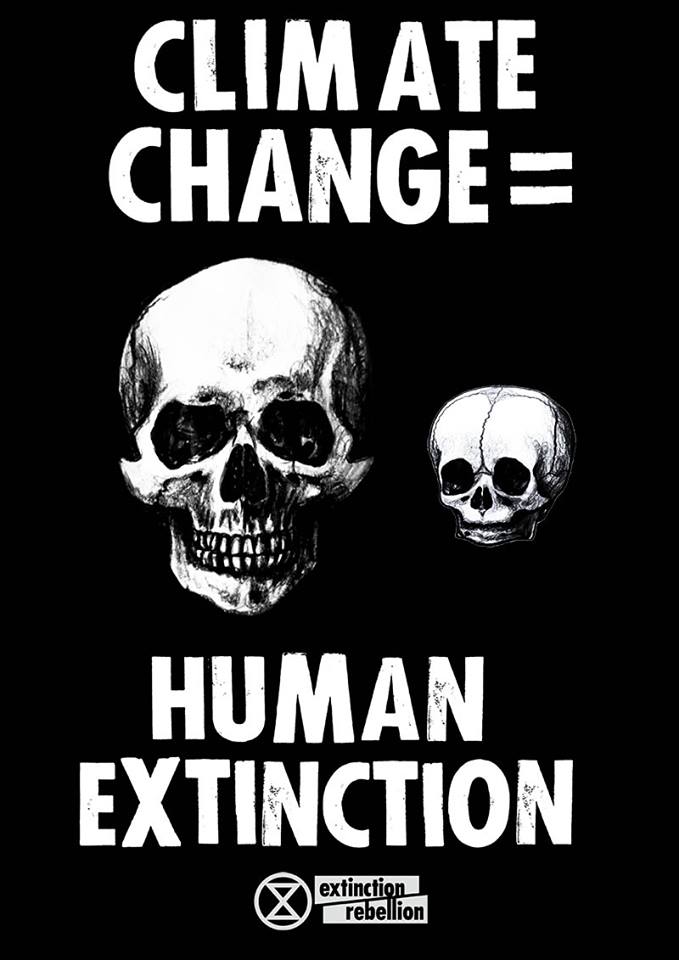
SIX
STEPS TOWARD A COOLER PLANET
1.
TRANSPORT:
Phase out polluting vehicles. Governments aim to end the sale of
new petrol, and diesel vehicles by 2040 but have no infrastructure plan
to support such ambition. Marine transport can be carbon neutral.
2.
RENEWABLES:
Renewable energy should replace carbon-based fuels (coal, oil and
gas) in our
electricity, heating and transport.
3.
HOUSING:
On site micro or macro generation is the best option, starting with
new build homes.
4.
AGRICULTURE:
We need trees to absorb carbon emissions from a growing
population,
essential air travel, and to build new homes. Reducing food waste and promoting less
energy intensive eating habits such as no meat Mondays.
5.
INDUSTRY:
Factories should be aiming for solar heating and onsite renewable energy
generation.
6.
POLITICS:
- National governing bodies need to adopt rules to eliminate
administrative wastages, to include scaling down spending on war
machines, educating the public and supporting sustainable social
policies that mesh with other cultures.
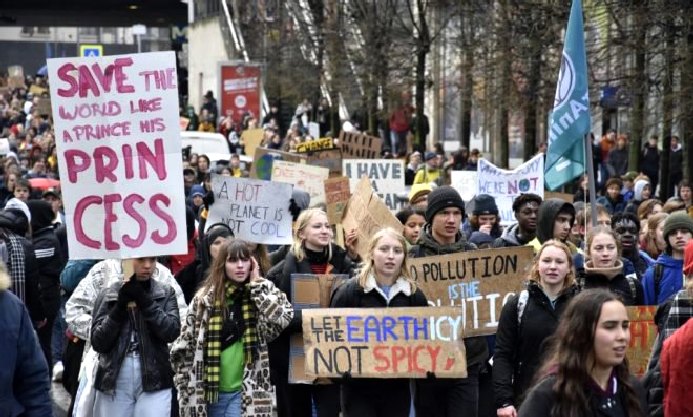
We
love your Friday vigils, that should get the message across if you can
keep up the pace. Lobby, lobby, lobby. But also have the answers to the
crisis at your fingertips and ask why more is not being done to switch
from dirty technology to clean tech.
There
can be no excuse if the numbers add up, though the politicians will use
spin to try and fool the electorate for as long as they can get away
with it. Al Gore was one of the first to point this out with: An
Inconvenient Truth.
If you or any
of your friends are good at maths, work out the sums for the
politicians. You will find that if these suggestions are implemented in
a sensible way, most countries will save money on their energy
bills and start to turn the clock back for the next generations to have
a better chance. In effect you will have a business plan or road map to
a cleaner planet.
We
must plant more trees as carbon sinks and for new houses built of
timber. Taking fewer holidays by plane is also a help as is eating less
lamb and beef. Then we must recycle everything more efficiently for a
truly Circular
Economy. These are the aims of the United
Nations with their Sustainability Development Goals, or SDGs. So you
are in good company.
     
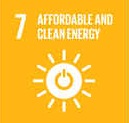 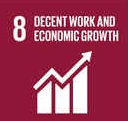 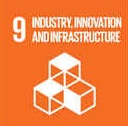 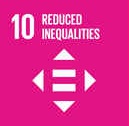 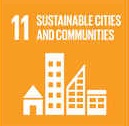 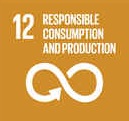
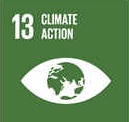 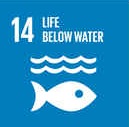    
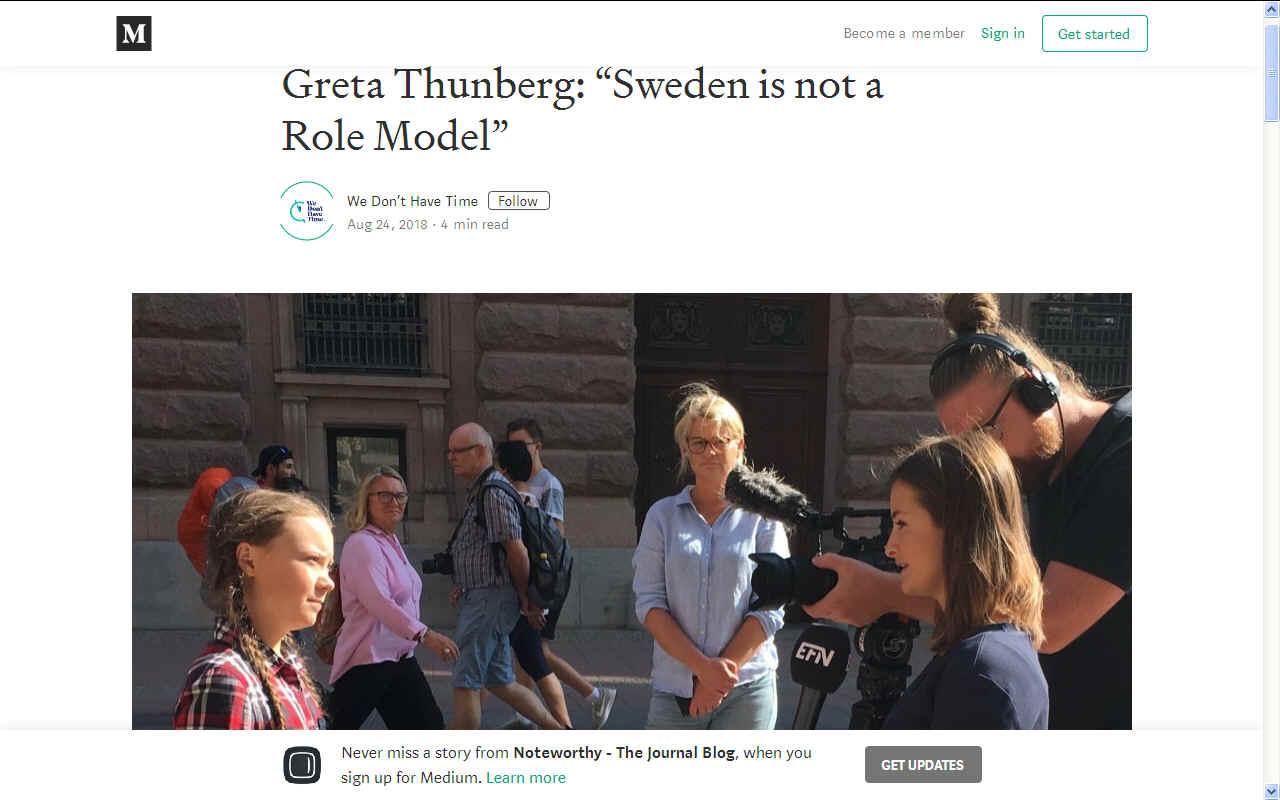
MEDIUM.COM
AUGUST
2018
15-year-old
Greta Thunberg sits down outside the
Swedish parliament every day until the Swedish election
- for the climate. The below is her own strong and apprehensive text about the climate crisis and our
global ineptitude to deal with it:
I want to feel safe.
When I walk home late at night.
When I sit on the subway.
When I sleep at night.
But I don’t feel safe.
How am I supposed to feel safe when I know that we are facing the most acute crisis in the history of mankind? When I know that if we don’t act now, everything will soon be too late?
The first time I heard about global warming, I thought: that can’t be right, no way there is something serious enough to threaten our very existence.
Because otherwise, we would not be talking about anything else. As soon as you turn on the TV, everything would be about this issue. Headlines, radio, newspapers. You would never read or hear about anything else.
As if a world war was raging.
But in fact, no one was talking…
And if they did, it was never in line with the scientists’ statements. The other day I watched a debate between party leaders on TV and saw how they were allowed to stand there and lie. They said it made no sense to make an effort to curb Sweden’s emissions, since we were such a “role model”. That we should focus on “helping” other countries to cut their emissions.
Sweden is not a role model. The people of Sweden yearly emits 11 tonnes of CO2 per capita. We’re on eighth place in the world according to WWF.
We’re the ones who need help.
I don’t understand how they can be allowed to lie like that on TV.
Maybe many grown-ups think the issue of climate change is difficult to understand? Maybe that’s why, whenever there’s a television program about the climate, it turns into children’s television? I grasped the issue of climate change when I was 12 and decided to never fly again, nor eat meat.
The climate crisis is the defining issue of our time. Yet everyone believes that we can solve the crisis without effort, without sacrifice.
”Think positive!” everybody says.
As if the passengers on Titanic, after the collision with the ice berg, would have sat down to talk about what stories the survivors could tell and how famous they would be. Or the number of jobs that would be created in the effort to help the survivors.
However, the ship would have sunk anyway, no matter their actions. We can, on the other hand, stop the collision. We know the ice berg is there. We even know its exact coordinates. But we’re not slowing down, nor are we changing course. And so we praise ourselves, perhaps, for having managed to unload some weight. While increasing the speed.
Will we slow down in time?
If I live to be 100 I will be alive in the year 2103.
When you think about “the future” today, you don’t think beyond the year 2050. By then I will, in the best case, not even have lived half my life. What happens next?
The year 2078 I will celebrate my 75th anniversary. If I have children and grandchildren they may want to celebrate that day with me. Maybe I will tell them about you? How do you want to be remembered?
What you do or don’t do, right now, will affect my entire life, and the lives of my children and grandchildren. Maybe they’ll ask why you did nothing, and why those who knew and could speak out, didn’t.
Greta Thunberg, 15 year-old, refusing school for the climate outside the Swedish parliament. Read about here protest here.
The above text was written by Greta Thunberg and translated from Swedish by
'We Don’t Have Time' who had her approval.
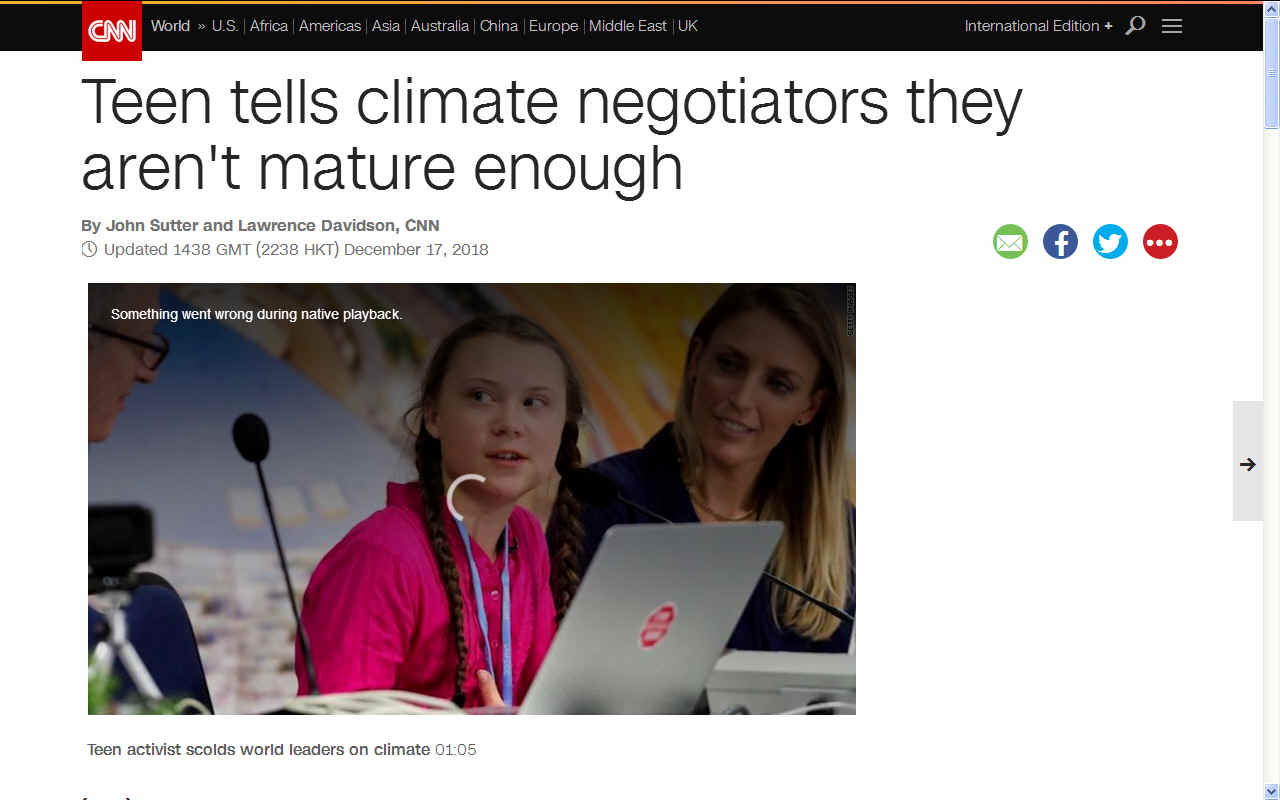
CNN NEWS 17 DECEMBER 2018
Greta Thunberg, a 15-year-old student from Sweden, captured the attention of the world recently when she shamed climate change negotiators at a United Nations climate summit in Poland.
"You are not mature enough to tell it like is," she said at the COP24 summit, which ended late Saturday night after two weeks of tense negotiations. "Even that burden you leave to us children. But I don't care about being popular. I care about climate justice and the living planet."
The climate talks resulted in nearly 200 nations agreeing to a set of rules that will govern the Paris Agreement on climate change, which aims to limit warming to 1.5 degrees Celsius over pre-Industrial levels. Even the negotiators know they're not doing nearly enough to reach that goal and avoid disastrous effects of climate chance, which include the end of coral reefs, rising seas, stronger superstorms and deadlier
heatwaves.
Thunberg and other young people emerged as among the strongest moral voices at the talks, which went into overtime amid disputes about the scientific consensus on global warming, which has shown for decades that burning coal, oil and gas wreaks havoc on people and the planet.
Climate leaders don't just talk. They act.
Join us!!
Global climate strike 14 December.
Spread the word!! #FridaysForFuture #ClimateStrike #ClimateChallenge #ClimateLeader #cop24 #schoolstrike4climate
pic.twitter.com/f5A2WogQxr
— Greta Thunberg (@GretaThunberg) December 12, 2018
The teen has inspired thousands of young people around the world to walk out of their schools on Fridays to demand adults take more action to protect their futures and those of future generations. She decided to walk out of her own school in Sweden, she told CNN, by herself. No one joined her the first day, she said. Then she kept at it, inspiring thousands.
"People started joining me," she said.
Last Friday, a number of students left their classes and walked into the conference center in Katowice, Poland, where the UN talks were held. They held signs that, together, read: "12 years left." That's a reference to the latest dire report from the Intergovernmental Panel on Climate Change, which says global climate targets could become impossible in just 12 years. The report says emissions need to be cut about in half by 2030, which would require a near-complete overhaul of the global energy system.
"Adults sometimes forget about the young people," said Małgorzata Czachowska, one of the Polish students inspired by Thunberg.
Wider shot so you can get a sense of how much media interest these kids are drawing. Inspired by Swedish 15 yr old. Calling for global school walk out. Critical moment in the fight against fossil fuels and climate change.
#COP24 #ClimateStrike
pic.twitter.com/8GuUmCueEZ
— John D. Sutter (@jdsutter) December 14, 2018
Toby Thorpe heard about Thunberg in Tasmania, Australia, and led a walkout of his own. That led to more than 10,000 students walking out of classes, he told CNN. He and others hope that effort will grow.
Thunberg, who describes herself on Twitter as a "15 year old climate activist with Asperger's," said she was inspired by the school walkouts in the United States that followed the deadly school shooting in Parkland, Florida.
She is asking students around the world to walk out of their classes each Friday to demand adults take climate action. Those actions include big systems changes like transitioning to cleaner sources of energy including wind and solar power. Thunberg told CNN she doesn't fly, doesn't eat meat (beef is a major contributor to climate change) and tries not to buy new things unless they're absolutely necessary in order to do her part.
"All I want to say is that they don't really care about us." Polish students walked out demanding climate action at #COP24 #ClimateStrike
pic.twitter.com/NIasaFiON0
— John D. Sutter (@jdsutter) December 14, 2018
She uses the hashtags #climatestrike and #fridaysforfuture.
"We have done this many times before and with so little results," she told CNN. "Something big needs to happen. People need to realize our political leaders have failed us. And we need to take action into our own hands."
By John Sutter and Lawrence Davidson

GUARDIAN
EXTINCTION CRISIS NOV
2018 -
How to push green issues up the political agenda is a question that has
exercised environmentalists for decades. Do dark warnings about the
world that awaits us if we do not curtail carbon emissions and protect
forests and oceans motivate people to act, or scare them off? Are
apocalyptic visions such as that in Cormac McCarthy’s novel The Road
what we need to open our minds, or an inducement to give up trying?
Opinion is divided, as events of the past week have illustrated. In
advance of his latest wildlife television series, Dynasties, David
Attenborough said at the weekend that too many warnings about
endangered species are a “real turn-off”. A few days earlier, the
activist group Extinction Rebellion launched a campaign of civil
disobedience by demanding a zero-carbon economy by 2025. Writing in
advance of a protest in London that saw 15 people arrested, Green MEP
Molly Scott Cato said she and others have been driven to break the law
after spending years ringing alarm bells and being ignored.
Influenced by thinkers including Charles Eisenstein and Erica Chenoweth,
whose ideas about peaceful protest have also been taken up by opponents
of President
Trump, and with a commitment to grassroots organising that is
similar to 350.org (the anti-fossil-fuel organisation launched in the US
by Bill McKibben in 2007), Extinction Rebellion aims to foment a mass
movement that will change history. Elected politicians, goes the
argument, have failed, as have businesses and other organisations
including environmental charities. Carbon
emissions and biodiversity loss are out of control. The “unimaginable
horrors” of unchecked warming
and habitat destruction mean more radical tactics are called for – and
morally justified by the dangers, in the eyes of protesters.
While the current focus on the extinction crisis is novel, and a
contrast to more familiar warnings about emissions, the notion that
environmental activism encompasses lawbreaking is not new. The Green
party of England and Wales approves of civil disobedience in the
statement of underlying principles known as its “philosophical
basis”. Greenpeace
has engaged in nonviolent direct action alongside the traditional NGO
tools of lobbying and petitions since the 1970s. Activists have used
occupations and blockades as techniques in protests against
road-building, airports and coal-fired power stations. They have also
mounted protests against sponsorship by oil companies in museums. Most
recently, attempts to frack in Lancashire have been disrupted by
protesters, three of whom were freed from prison last month after
successfully appealing against sentences that judges found to be
“manifestly excessive”.
The heightened language of emergency and breakdown employed by this new
grouping will not appeal to everyone. Nor is it intended to. It is
rational to be sceptical about whether the protesters will achieve their
aims. But on the basis of the most recent warnings about rising
temperatures and species decline, and chancellor Philip
Hammond’s failure to mention climate change at all in last
week’s budget, it is not rational to deny that they are justified in
rebelling against the government’s inaction. Their sense of urgency is
welcome.
THE
GUARDIAN SEPTEMBER 1 2018 - Swedish 15-year-old cutting class to fight climate crisis
Following Sweden’s hottest summer ever,
Greta Thunberg decided to go on
school strike at the parliament to get politicians to act.
Why bother to learn anything in school if politicians won’t pay attention to the facts?
This simple realisation prompted Greta Thunberg, 15, to protest in the most effective way she knew. She is on strike, refusing to go to school until Sweden’s general election on 9 September to draw attention to the
climate
crisis.
Her protest has captured the imagination of a country that has been struck by heatwaves and wildfires in its hottest summer since records began 262 years ago.
Every day for two weeks, Thunberg has been sitting quietly on the cobblestones outside parliament in central Stockholm, handing out leaflets that declare: “I am doing this because you adults are shitting on my future.”
Thunberg herself is a diminutive girl with pigtails and a fleeting smile – not the stereotypical leader of a climate revolution.
“I am doing this because nobody else is doing anything. It is my moral responsibility to do what I can,” she says. “I want the politicians to prioritise the climate question, focus on the climate and treat it like a crisis.”

When people tell her she should be at school, she points to the textbooks in her satchel.
“I have my books here,” she says in flawless English. “But also I am thinking: what am I missing? What am I going to learn in school? Facts don’t matter any more, politicians aren’t listening to the scientists, so why should I learn?”
Thunberg’s protest might come as a surprise to anyone seduced by Sweden’s reputation as a climate pioneer and champion of the environment. This year the country enacted “the most ambitious climate law in the world”, aiming to become carbon neutral by 2045 and comfortably beating the
2015 Paris climate targets along the way.
“This is too little too late, it needs to come much faster,” Thunberg says.
“Sweden is not a green paradise, it has one of the biggest
carbon
footprints.”
Her parents want her to give up her protest and go back to school. “My teachers are divided,” Thunberg says. “As people they think what I am doing is good, but as teachers they say I should stop.”
One teacher to have downed tools to join her protest is Benjamin Wagner, 26. He expects to lose three weeks’ wages – and his job – as a result of his strike.
“Our inability to stop climate change is like the efforts to stop
world war one – we knew for years it was coming, they arranged all sorts of conferences, but still they didn’t prevent it,” Wagner says.
“Greta is a troublemaker, she is not listening to adults. But we are heading full speed for a catastrophe, and in this situation the only reasonable thing is to be unreasonable.”
There are signs that more Swedes are listening. The Green
party, a partner in the centre-left coalition government, was languishing in the polls before the country was hit by more than 60 forest
fires, which raged for weeks through a rural tinderbox created by the unprecedented drought. Now the party’s support is up by half to about 6%.
“I am very impressed by Greta’s courage and determination,” says Janine Alm Ericson, a Green member of parliament.
“But I am also sad that she feels she has to be there – the political parties in Sweden have not done enough. Thanks to the hot summer it has become easier for people to imagine what
climate change can mean for us and others in
Europe if we continue to ignore what is happening.”
Outside parliament, Stella d’Ailly, 45, an art director, has come to join Thunberg’s protest.
“I feel like I am dying inside if I don’t protest,” she says. “Sweden may be well organised to recycle our trash, for example, but we do nothing to cut the amount of
plastic
bottles and
packaging in the first place. We need drastic change.”
Thunberg’s own awakening to the climate crisis a few years ago caused upheaval in her family. Her mother, the well known opera singer Malena Ernman, has given up her international career because of the climate effects of aviation.
“Greta forced us to change our lives,” says her father Svante. “I didn’t have a clue about the climate. We started looking into it, reading all the books – she has read them too.”
Her teachers were telling her to turn off the lights and save paper, then flying off to
New York for a holiday. For Greta, this was just not good enough: “Everyone believes that we can solve the crisis without effort, without sacrifice,” she wrote in an article widely circulated on social media and translated into English.
While on strike, she has done a lot of homework and read three books, her father says.
“She is supposed to be in school, we cannot support her action. But we respect that she wants to make a stand. She can either sit at home and be really unhappy, or protest and be happy.”
Greta has Asperger’s syndrome, which in the past has affected her health, he says. She sees her condition not as a disability but as a gift which has helped open her eyes to the climate crisis.
“The best thing about my protest has been to see how more and more people have been coming and getting involved,” Greta says.
“I don’t care if I get into trouble at school. I believe that one person can make a difference.”
By
David
Crouch (In Stockholm)
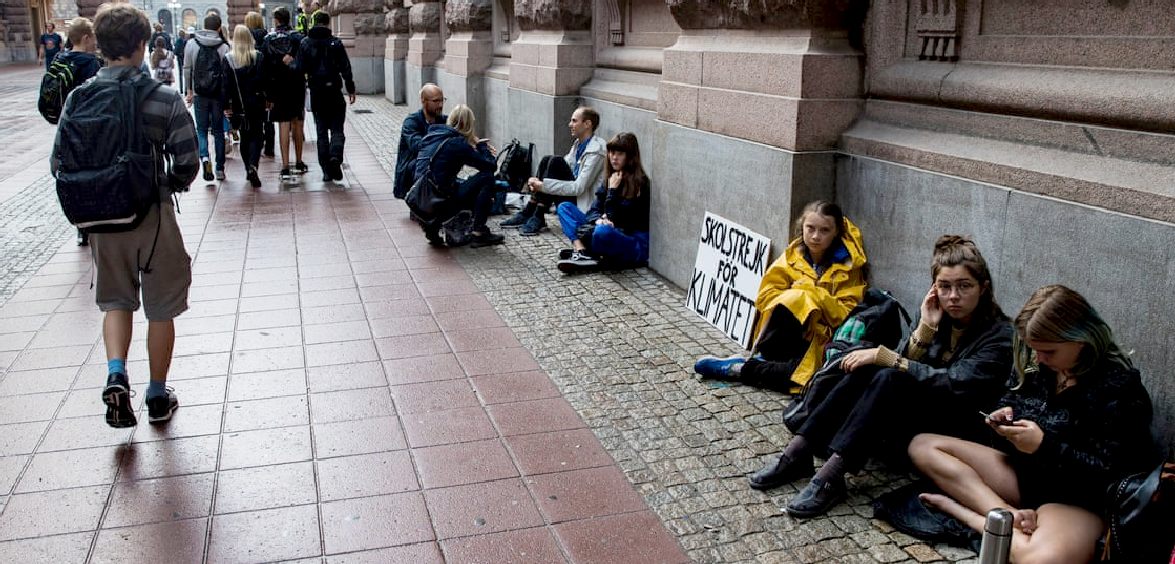
STUDENTS
STRIKE SKOLSTREJK FOR KLIMATET CLIMATE
On 20 August 2018, Thunberg, then in ninth grade, decided to not attend school until the 2018 Sweden general election on 9 September after heat waves and wildfires in Sweden. Her demands were that the Swedish government reduce carbon emissions as per the Paris Agreement, and she protested via sitting outside the Riksdag every day during school hours with the sign Skolstrejk för klimatet (school strike for climate).
After the general elections, she continued to strike only on Fridays, which gained worldwide attention. She inspired school students across the globe to take part in student strikes. As of December 2018, more than 20,000 students held strikes in at least 270 cities in countries including
Australia, Austria, Belgium,
Canada, the Netherlands,
Germany,
Finland,
Denmark,
Japan,
Switzerland, the
United Kingdom and the
United
States. In Australia, thousands of school students were inspired by Thunberg to strike on Fridays, ignoring Prime Minister Scott Morrison's comments of "more learning in schools and less activism".
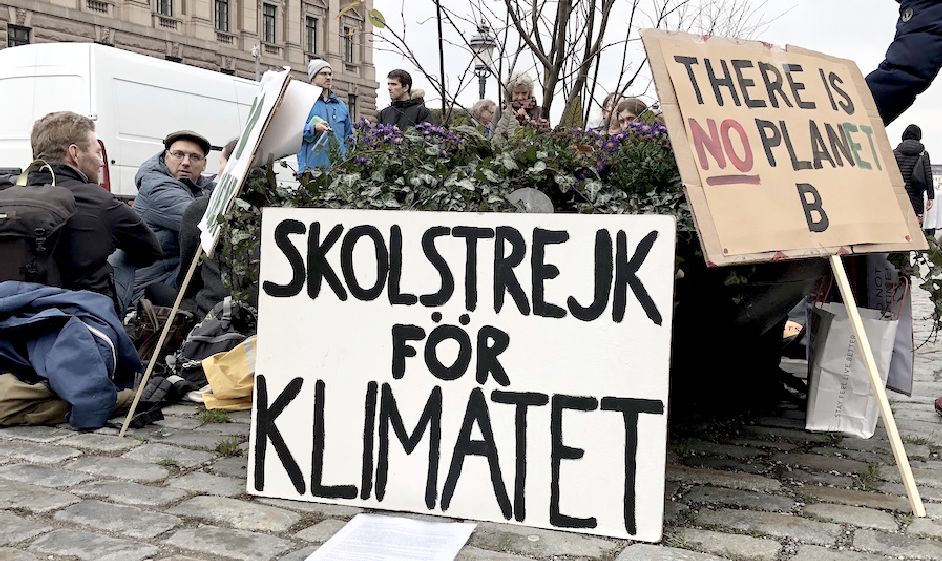
ABOUT
GRETA
Greta Thunberg is a Swedish climate activist. She is known for striking outside the Swedish parliament building to raise climate change activism, speaking at TEDxStockholm, and addressing the
COP24 UN climate
conference.
Thunberg was born on 3 January 2003. Her mother is Malena Ernman, a Swedish opera singer. Thunberg's father is Svante Thunberg, who is an actor named after Svante Arrhenius. Arrhenius is an ancestor of her father, and won a Nobel Prize in Chemistry for calculating the effects of greenhouse gases in the atmosphere. Her grandfather is Olof Thunberg, an actor and a director.
Thunberg has been diagnosed with Asperger's syndrome. She insisted that her family become
vegan and give up flying.
Thunberg participated in the Rise for Climate demonstration outside the European Parliament in Brussels and the Declaration of Rebellion organized by Extinction Rebellion in London.
On 24 November 2018, she spoke at TEDxStockholm. She speaks about autism as a way to explain why she cannot understand the inaction of governments and of citizens on climatic threat. Towards the conclusion of her talk, Thunberg said, "We've had thirty years of pep-talking and selling positive ideas. And I'm sorry, but it doesn't work. Because if it would have, the emissions would have gone down by now—they haven't."
On 4 December 2018, Thunberg addressed the COP24 United Nations climate change
summit. On 12 December 2018, Thunberg again addressed the COP24 plenary assembly, stating:
“You only speak of a green eternal economic growth because you are too scared of being unpopular. You only talk about moving forward with the same bad ideas that got us into this mess, even when the only sensible thing to do is pull the emergency brake. You are not mature enough to tell it like it is. Even that burden you leave to us children.”
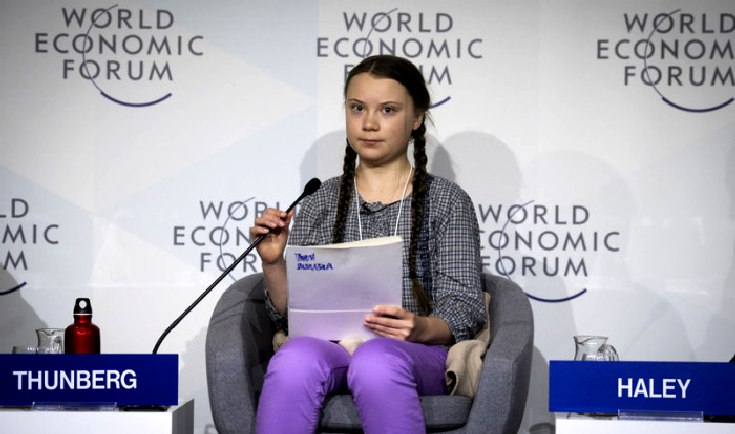
PRIZES
AND AWARDS
Thunberg was one of the winners of Svenska Dagbladet's debate article writing competition on the climate for young people in May 2018. In the World Nature Fund's prize the young environmental hero of the year 2018, Thunberg is one of the three nominees. Thunberg was nominated for the
electricity company Telge Energi's prize for children and young people who promote
sustainable
development, Children's Climate Prize, but declined because the finalists would have to fly to Stockholm. In November 2018, she was awarded the Fryshuset scholarship of the Young Role Model of the Year. In December 2018,
Time magazine named Thunberg one of the world's 25 most influential teenagers.

COP
25 CHILE 2019
..
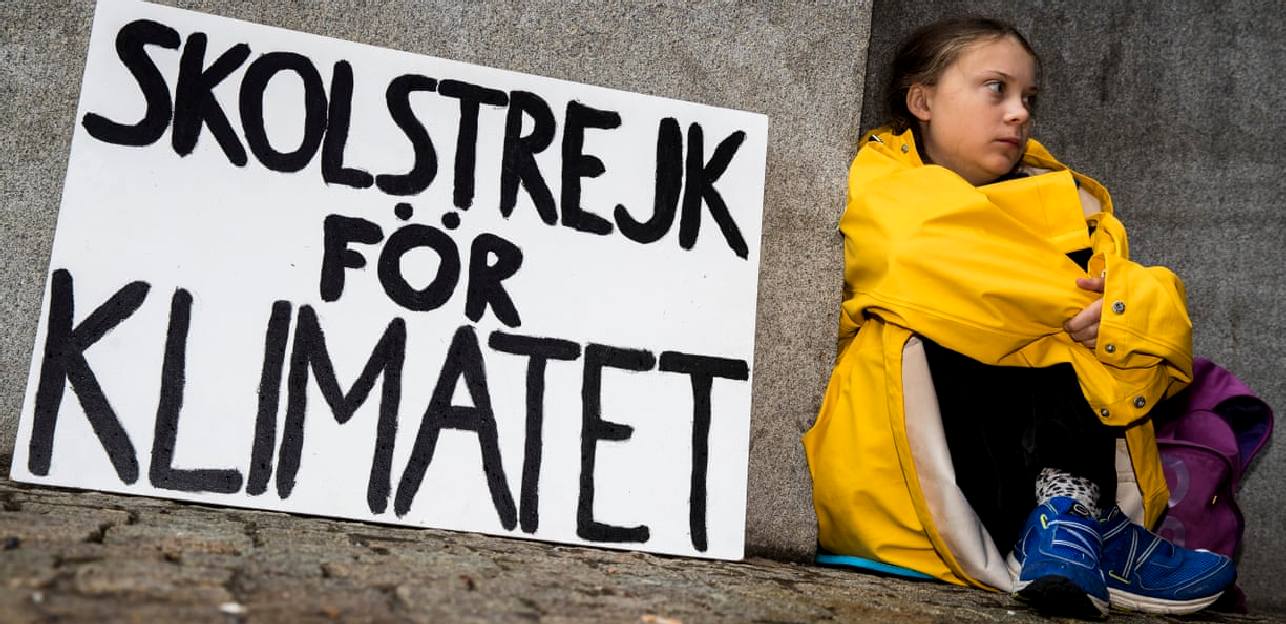
LINKS
& REFERENCE
https://medium.com/@wedonthavetime/greta-thunberg-sweden-is-not-a-role-model-6ce96d6b5f8b
https://edition.cnn.com/2018/12/16/world/greta-thunberg-cop24/index.html
https://blogs.timesofisrael.com/imagine-this-greta-thunberg-speaks-up-for-taiwans-right-to-join-cop-25-in-2019/
https://twitter.com/gretathunberg
https://en.wikipedia.org/wiki/Greta_Thunberg
https://www.theguardian.com/science/2018/sep/01/swedish-15-year-old-cutting-class-to-fight-the-climate-crisis
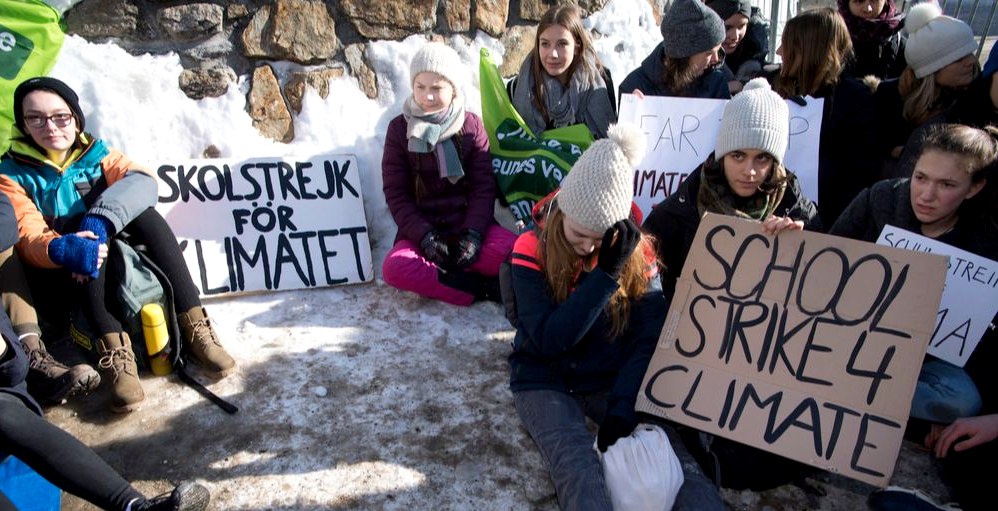
|
































